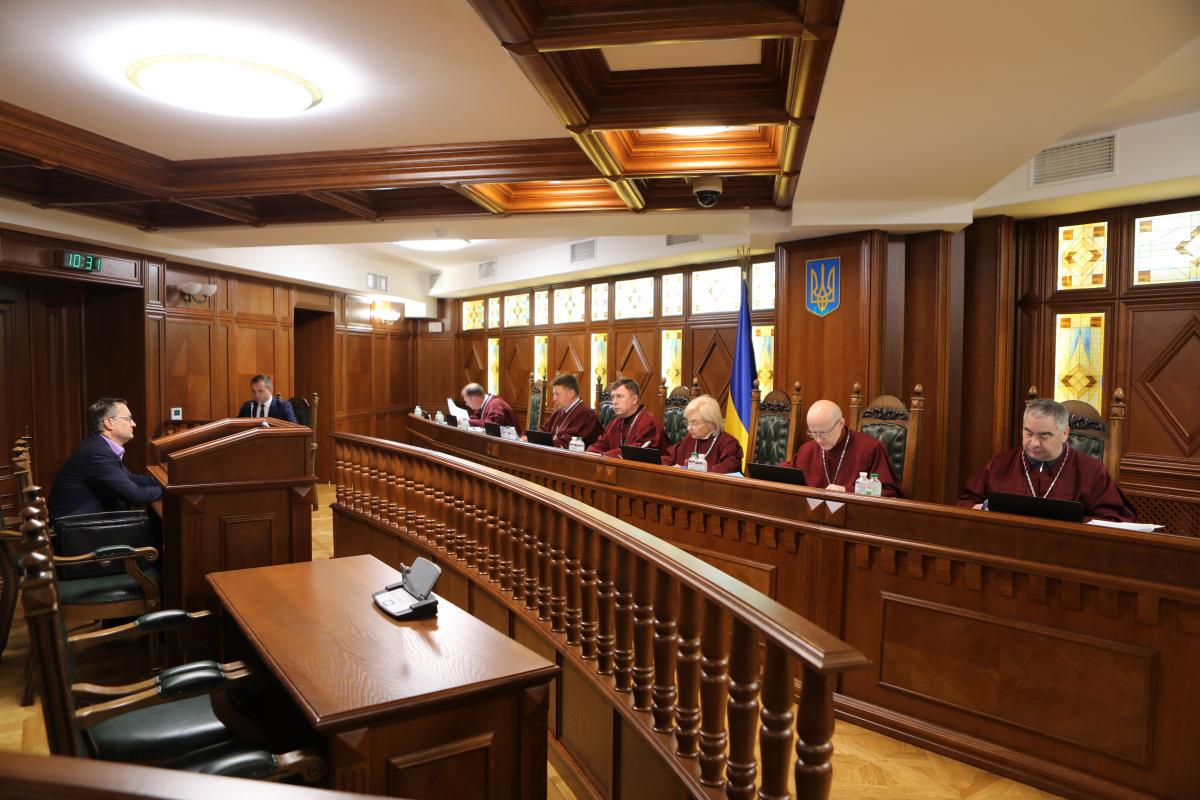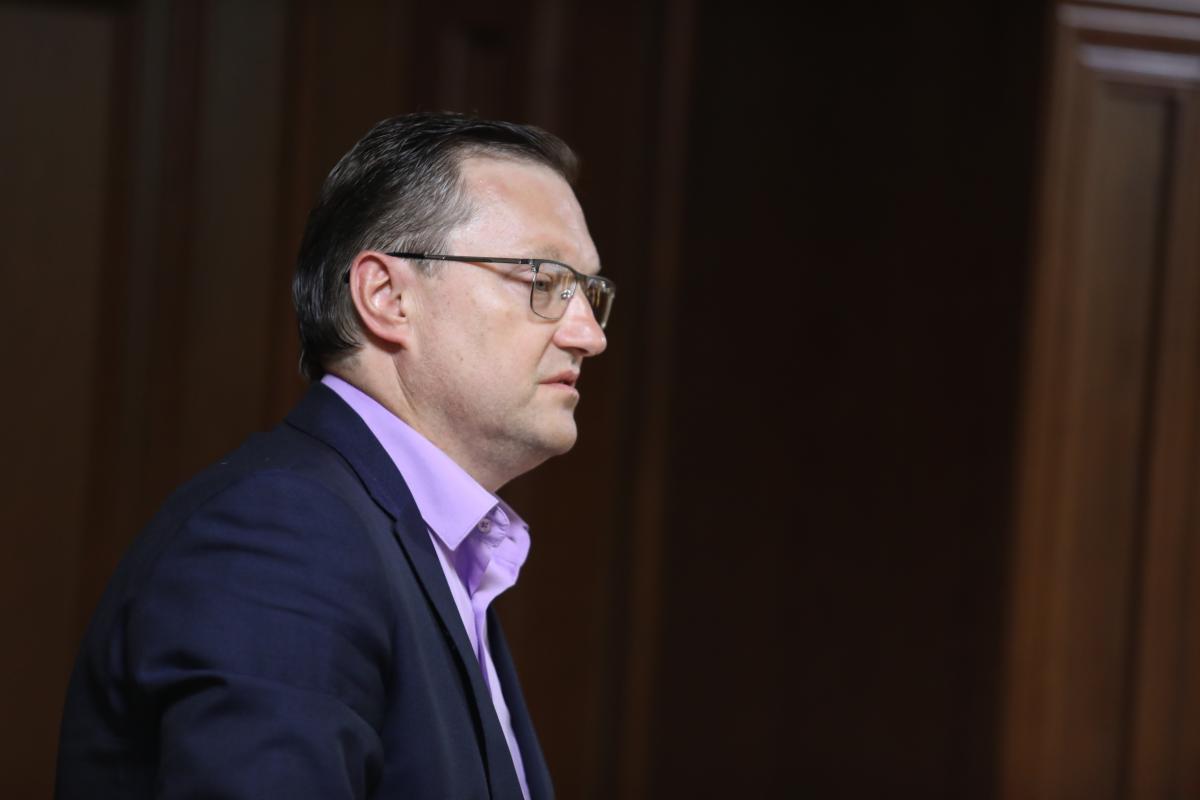18 September 2025
On 17 September 2025, during the public part of its plenary session, the Second Senate deliberated the case upon the constitutional complaint filed by Tetiana Samborska in the form of written proceedings.
As noted by the Judge-Rapporteur in the case, Oleh Pervomaiskyi, the subject of constitutional control in this case is Article 303.1-2 of the Criminal Procedural Code of Ukraine (hereinafter, the “Code”).
The contested provisions of the Code establish a list of decisions, actions or inactions of an investigator, inquirer or prosecutor that may be appealed in pre-trial proceedings (Article 303.1 of the Code); complaints against other decisions, actions or inactions of an investigator, inquirer or prosecutor are not considered during pre-trial investigation and may be considered during preparatory proceedings in court in accordance with the rules of Articles 314-316 of this Code (Article 303.2 of the Code).
In the opinion of the author of the petition, these provisions of the Code violate a number of articles of the Constitution of Ukraine. In support of her position, the applicant cites certain provisions of the Constitution of Ukraine, decisions of the Constitutional Court of Ukraine, the 1950 Convention for the Protection of Human Rights and Fundamental Freedoms, legislative acts and court decisions in her case.
The content of the constitutional complaint and the attached materials reveal the following. Since 28 October 2021, the State Bureau of Investigations' Main Investigation Department has been conducting a pre-trial investigation in criminal proceedings concerning possible unlawful actions by officials of the Zhytomyr Customs Office during the processing of a customs declaration.
On 9 July 2024, the applicant received a notice of suspicion of committing a criminal offence under Article 367.2 of the Criminal Code of Ukraine (official misconduct).
On 9 July 2024, the applicant received a notice of suspicion of committing a criminal offence under Article 367.2 of the Criminal Code of Ukraine (official negligence resulting in serious consequences).
In August 2024, the materials of the pre-trial investigation concerning Tetiana Samborska were separated into a separate criminal proceeding. She was served with a notice of replacement of the previously notified suspicion with a new one, as well as a notice of completion of the pre-trial investigation, and the materials of the proceeding became available for review.
Lawyer Vadym Kostenko, acting on behalf of Tetiana Samborska, appealed to the Pecherskyi District Court of Kyiv in September 2024, complaining about the inaction of the prosecutors of the Office of the Prosecutor General and requesting that the prosecutors be obliged to close the criminal proceedings against Tetiana Samborska due to the expiry of the pre-trial investigation period.
The investigating judge of the Pecherskyi District Court, by a ruling dated 2 October 2024, refused to initiate proceedings upon the complaint against the inaction of authorised persons of the Office of the Prosecutor General and the obligation to take action.
Challenging this decision, lawyer Vadym Kostenko filed an appeal, but the Kyiv Court of Appeal, in its ruling of 3 February 2025, left the investigating judge's ruling unchanged and dismissed the appeal. The court of appeal proceeded, in particular, from the fact that Article 303.1 of the Code contains an exhaustive list of decisions, actions or inaction of an investigator, inquirer or prosecutor that may be appealed during a pre-trial investigation.
Oleh Pervomaiskyi also pointed out that to provide full and impartial deliberation of the case the Court requested government bodies, research institutes, higher education establishments, and members of the Court's Scientific Advisory Council to share their opinions on the issues raised in the constitutional complaint. The judges will be informed of the content of the responses in the in-camera part of the plenary session, the Judge-Rapporteur emphasised.
After examining the case materials in the public part of the plenary session, the Court proceeded to in-camera part of the session for a decision.
The representative of the entity entitled to file a constitutional complaint, lawyer Vadym Kostenko, took part in the plenary session.
The video recording of the plenary session is available on the Court’s official website in the Section “Archive of Video Broadcasts of Sessions”.



